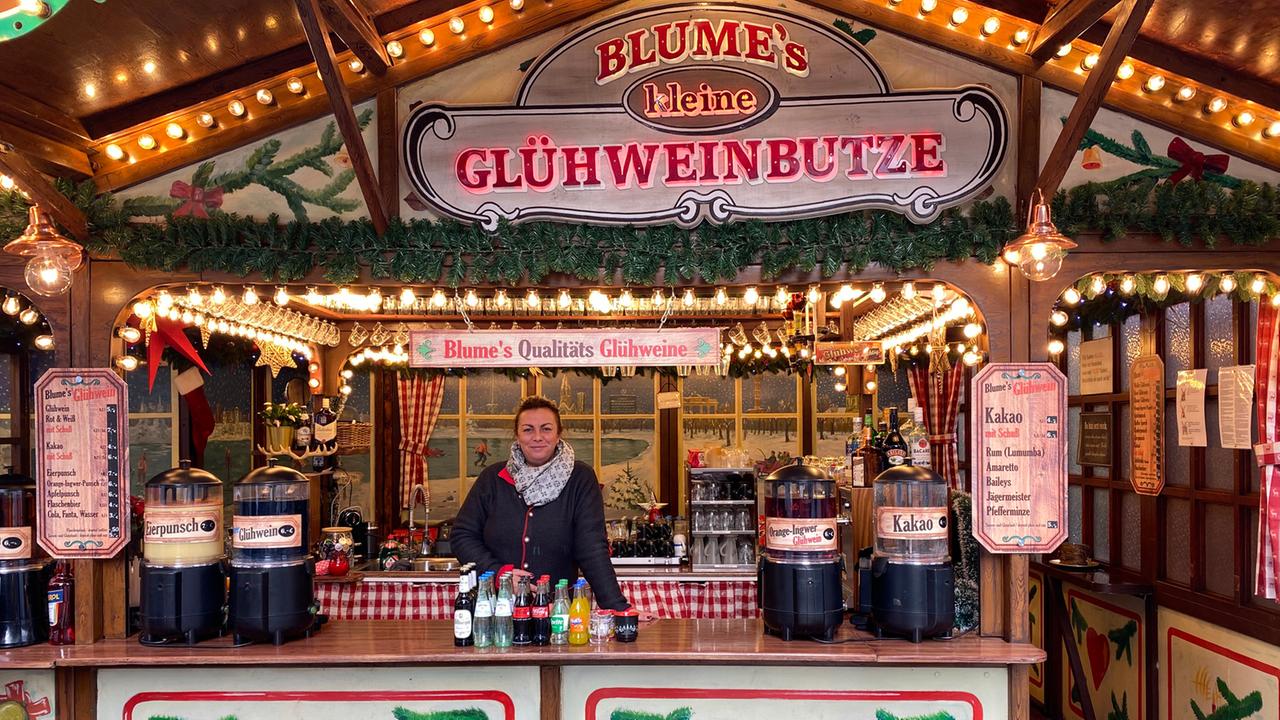After Dead Sunday, the Christmas markets in Germany gradually open. The industry is suffering from high costs, but is still confident at the start of the season.
Even the bratwurst is getting the Dubai stamp this year: it is half a meter long and of course has pistachios inside – based on the currently hyped Dubai chocolate. Showman Martin Blume took over the business from his father and is proud of his idea. The Dubai bratwurst has its price: it costs eight euros. Blume speaks of an unheard of price increase.
What he means by this are the costs that he has to shoulder as a stand operator, the rent, in order to be able to sell at the Christmas market on Berlin's Breitscheidplatz. The mulled wine costs five euros, which is the same price as last year, he says. Blume's employee has already grilled a few Dubai sausages, his colleague is standing at the mulled wine stand waiting for customers.
Anyone can make Dubai chocolate: Martin Blume offers half a meter of bratwurst filled with pistachios.
Massive cost pressure, shrinking margins
Shortly after 11 a.m. on Monday morning. It's still quiet at the Christmas market on Breitscheidplatz, the showmen and showmen have just come together for the opening service. It has become a tradition here since the terrorist attack in 2016. “I wish us all a good and peaceful Christmas market,” says the priest at the end of his sermon, and the prayers are also about economic success, “that the effort pays off.”
The topic is on everyone's minds here, says organizer Michael Roden from the Berlin Showmen's Association. The cost volume for the market at Breitscheidplatz, with all the trimmings, is around 1.5 million euros. This would have to be spread across just over 200 dealers. “It's about 30,000 or 40,000 euros for a mulled wine stand. These are stand rentals that make it difficult for small retailers to achieve an acceptable return. There are also some who have canceled because they don't want it can do more or they say, if the return is so weak, then I don't have to stand there for seven weeks.”
The showmen at Berlin's Breitscheidplatz are hoping for good business so that their weeks of work will pay off.
High stand rents, increased energy and personnel costs
At many stands, the operators are still busy with the final touches on the opening morning. Ketchup dispensers have to be in the right place, the pine branch decoration is still being put in position. The start of a few weeks where no one knows how much they will actually bring in. The high stand rents are one thing, plus the increased energy and personnel costs. In general, the topic of personnel: As in other industries, it is not easy to get good people. “But if you pay well, then people are willing. We pay well above the minimum wage, no one would come for that anymore. We're between 15 and 20 euros an hour net,” says Roden.
The cost pressure is great everywhere, says Frank Hakelberg from the German Showmen's Association, with a view to the Germany-wide situation. “But the showmen are trying to keep the prices somewhat popular in order to keep the audience. The costs are rising, but we can't just pass them on, that's not possible.” The most expensive mulled wine on Breitscheidplatz costs eight euros: baked apple mulled wine with a shot of Calvados. The standard mulled wine from almost all providers here is five euros.
“It’s not exactly cheap,” says customer Christina Tamms. “But I only come once or twice a season, so I hardly notice it. But for a family it looks different. Good night, Marie.” Ulrich Artel, who treats himself to eggnog while his wife is at the doctor, also finds the prices high. “But if you look at it in the context of everything else, it almost works.”
Most showmen in Berlin charge five euros for a mulled wine without a shot.
Prices depending on location and product different
The price range is enormous, says association representative Hakelberg. From winemakers' wine, some of which is also organic, to cheaper versions; from Christmas markets in the center of large cities to smaller markets that perhaps only take place on weekends.
View from Berlin across the state border to Brandenburg: In Potsdam, like in many German cities, the Christmas market opened on the Monday after Dead Sunday. Elke Probst only charges 3.50 for a cup of mulled wine at her stand: “Of course we try to keep the prices stable – I can only afford that if my regular customers come back to visit me for 30 years. Let's hope for the best. “
According to estimates, there are 3,500 Christmas markets in Germany, says Hakelberg. At the last count in 2018, there were 160 million visitors. New figures are to be collected this year. Hakelberg is sure that there will be even more: “People want to get out of the house again, off the sofa, and meet up.”





